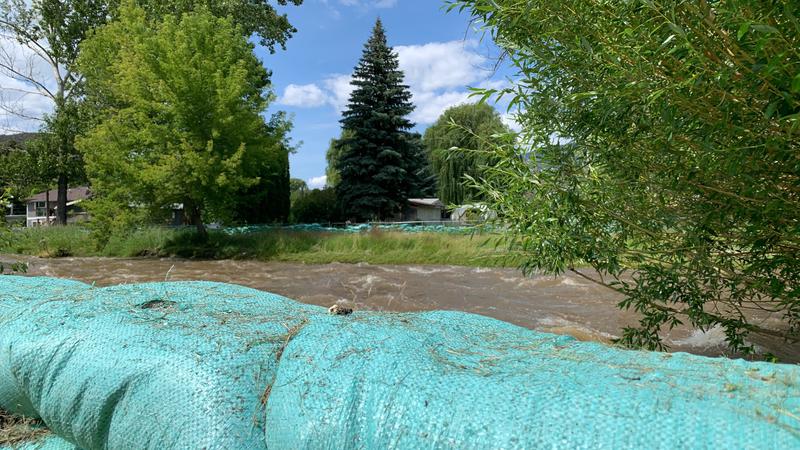
New runoff patterns from Elephant Hill wildfire affecting Bonaparte River at Cache Creek
CACHE CREEK, B.C. — Officials in Cache Creek say the behaviour of the Bonaparte River this year may be directly related to the damage done by the massive Elephant Hill wildfire in 2017.
The Bonaparte is slowly receding this weekend after heavy rainfall on Canada Day resulted in its third peak of the spring.
Cache Creek communications manager Wendy Coomber says this week was the third time the community believed the river had reached its highest level of the season.
“Even the B.C. River Forecast Centre said that some of the things that the river is doing this year have also caught them by surprise,” Coomber told CFJC Today. “It’s pretty unheard of for the Bonaparte to have three peaks in one freshet.”


